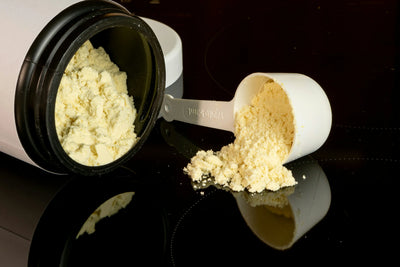Introduction
The oregano oil contains high concentrations of beneficial compounds that are naturally found in the plant. This article describes the benefits and effects of oregano oil, as well as its uses and contraindications.
This oil can be used orally, unlike oregano essential oil, which is more concentrated and used in aromatherapy. People should not take essential oils orally.
Whether used topically or as an oral supplement, oregano oil may be helpful for a variety of conditions.
The compounds in oregano oil have potent antioxidant and antibacterial properties.

Before using oregano oil, there are a few possible hazards and problems to think about, and it might not be suitable for everyone. This article covers 10 benefits and uses of oregano oil.
Oregano, or Origanum vulgare, is a small, dense plant that belongs to the mint family. It is a common culinary herb in Italian cuisine.
Oregano oil contains a large number of important compounds in its leaves and small stems. Producers of oregano oil dry the leaves and stems and steam distill the plant matter to extract as many compounds as possible.
Oregano oil contains:
Thymol, an antioxidant and the primary active component of oregano oil, may help ward against fungus infections and defend against toxins. The most prevalent thymol in thyme, oregano oil, is found in high concentrations.
Benefits and Effects of Oregano Oil
Oregano oil may have the following benefits and effects:
1. Fights bacteria
Due to its high carvacrol content, oregano oil may help fight certain types of bacteria.
For example, staphylococcus is a common bacteria that causes staph infections. Certain strains occur naturally in the body, but when the bacteria grows too fast, it can cause annoying symptoms.
Studies have shown that carvacrol is effective in eliminating the bacteria Staphylococcus aureus and Staphylococcus epidermidis, two common causes of infection.
Taking oregano oil supplements or rubbing it on the skin may help people utilize these antibacterial effects.
Researchers are also exploring the use of oregano oil for drug-resistant bacteria. The authors of a Frontiers in Microbiology study found that a combination of oregano oil and silver nanoparticles effectively eliminated all the bacteria they tested.
2. Treating small intestinal bacterial overgrowth (SIBO)
Oregano oil may be helpful in treating chronic bacterial problems such as SIBO. People with SIBO experience gastrointestinal problems due to an overgrowth of certain bacteria in the gut.
A 2014 study found that herbal remedies (including herbs high in both carvacrol and thymol) are effective tools for treating SIBO.
More research is needed to determine the specific impacts of each chemical, but these preliminary findings appear promising.
3. Treatment of fungal infections
Oregano oil also appears to be an effective antifungal agent due to its high thymol content.
A 2015 study found that thymol was effective against common Candida fungal infections.
Candida can cause many types of infections, including:
- Thrush
- Yeast infections
- Toenail or fingernail infections
- Foot fungus
However, this study was conducted in test tubes and more research on humans is needed to determine the effectiveness of oregano oil.
4. Provides antioxidants
Oregano oil is also a strong antioxidant. Antioxidants protect the organism from the harmful effects of oxidative stress and free radicals.
Increased DNA damage and cell death can result from oxidative stress, and oxidation may also contribute to other issues like atherosclerosis, arthritis, and some types of cancer.
Strong antioxidants like thymol and carvacrol may aid in lowering oxidation. The experts advise that more research be done to determine acceptable dosages for everyday use.
5. Reduces inflammation
According to some reports, oregano oil may assist to reduce inflammation. The compound carvacrol has shown anti-inflammatory effects in both animal models and in vitro studies.
The 2017 study looked at various studies on the anti-inflammatory effects of carvacrol.
In one study on mice, the compound prevented obesity by affecting inflammation-related genes. Another study on animals found that the chemical decreased edema.
While the results show promise, researchers are calling for more testing on humans to determine safe doses.
6. Wound healing
Applying diluted oregano oil to the skin can help protect smaller cuts and abrasions on the skin.
Compounds such as thymol and carvacrol can protect these types of wounds from bacterial infection.
7. Insect Repellent
Both carvacrol and thymol may be effective insect repellents.In 2017, researchers found that these compounds could repel some wall lice and mosquitoes. This study included test tube studies and those with human participants.
More research will help confirm this potential benefit, but applying diluted oregano oil to the skin may be a natural way to help repel bugs.
8. Pain Relief
There is evidence that oregano may be an effective pain reliever. An animal study found that oregano extract relieved pain.
These results were dose-dependent - the more the animals took, the less pain they felt.
The oil might not yield the same outcomes since, crucially, the researchers utilized a water-based extract. More research on humans could help determine the right dosage.

9. Helps with weight loss
Oregano oil is also a useful tool for people who want to lose weight. Researchers have found that carvacrol, the main compound in oregano oil, disrupts some of the processes involved in the production and accumulation of fat tissue.
More direct research may help provide more evidence for these claims.
10. Beat Cancer
There are claims that oregano oil may help fight certain cancers. A review suggests that the essential oil in oregano helps prevent certain types of colon and breast cancers from growing in test tubes.
The oil also seems to inhibit the growth of some lung and prostate cancer cells. Many studies on cancer come from test tubes or animal models, so one should take these results with a grain of salt and never use essential oils as a substitute for medication.
How to Use Oregano oil?
Oregano oil is available in capsules and liquid. It can be purchased at most health food stores and online.
The strength of each oil may vary, so it is important to follow the manufacturer's instructions or work with a qualified healthcare practitioner to determine the safest dosage.
People who don't like the taste of oregano should opt for these capsules, which they can swallow without tasting the oregano oil.
To use oregano oil topically for skin problems, one can dilute a drop or two in a carrier oil. Then, one can apply this mixture directly on the skin.
Contraindications and Risks of Use
Be sure not to ingest too much oregano oil as it is very effective. It is best to use it carefully under the guidance of a healthcare professional.
If a person takes this oil orally, there is a high risk of burning the internal tissues. Always follow the manufacturer's guidelines.
Avoid using oregano oil on youngsters or newborns. Pregnant or breastfeeding women and diabetics should also avoid using it.
Lithium and diuretics are among the drugs that oregano oil may interact with. In addition, allergies to the oil are possible.
Scientific Experiments with Oregano Oil
Analgesic
In animal studies, rats injected with 50mg/kg of carvacrol (the main chemical constituent of oregano essential oil) into the abdomen can reduce pain sensation.1~3 Similar results were found with oral administration of 50mg/kg.
Anti-Inflammatory
In vitro studies have shown that carvacrol (the main chemical component of oregano essential oil) can inhibit the inflammatory factor COX-2 and thus fight inflammation.
Anti-Microbial
In vitro studies have shown that oregano essential oil has strong antimicrobial properties against Gram-negative and Gram-positive bacteria, as well as drug-resistant strains. We have further found that carvacrol or thymol can kill bacteria by disrupting their cell membranes.
In vitro studies have shown that carvacrol, the main chemical component of oregano essential oil, is effective against certain non-enveloped viruses or viruses that do not have a protective protein sheath, such as yellow fever.
In vitro studies have shown that Carvacryl (a major chemical constituent of Oregano essential oil) is effective in inhibiting pathogenic E. coli bacteria in the urinary tract and promoting urinary tract health.
Anti-Oxidant
Animal studies indicate that oral administration of 60mg/kg of carvacrol (the main chemical constituent of oregano essential oil) may protect the liver from chemical-induced oxidative damage.
Chronic Obstructive Pulmonary Disease
Animal studies indicate that guinea pigs fed 120mcg/ml of carvacrol (the main chemical component of oregano essential oil) in water may reduce lung swelling in chronic obstructive pulmonary disease.
Gastrointestinal Health
Human clinical trials have shown that consuming 800mg of oregano oil three times a day for six weeks can improve gastrointestinal discomfort caused by pathogenic bacteria.
Inflammatory Bowel Disease
In animal studies, rats fed a combination of 0.2% oregano and 0.1% thyme essential oils mixed with food improved swelling in ulcerative colitis.
5 Other Health Benefits of Oil of Oregano for Dogs
Although often used in small amounts, oregano contains some important nutrients. Just one teaspoon of dried oregano meets about 8% of your daily vitamin K needs.
From helping to fight bacteria to reducing inflammation, research has uncovered some impressive potential benefits.
1. Oregano is rich in antioxidants
Antioxidants, which help prevent damage from dangerous free radicals in the body, are abundant in oregano.
The accumulation of free radicals has been linked to chronic diseases such as cancer and heart disease.
Several in vitro studies have found that oregano and oregano oil are rich in antioxidants.
Oregano oil is particularly high in carvacrol and thymol, two antioxidants that can help prevent cell damage caused by free radicals.
Combined with other high antioxidant foods such as fruits and vegetables, oregano provides a high level of antioxidants that can help improve your health.
Oregano is rich in antioxidants that may help prevent damage by neutralizing disease-causing free radicals.
2. Oregano may help fight bacteria
Oregano contains certain compounds with potent antibacterial properties.
One test tube study showed that oregano essential oil helped stop the growth of E. coli and Pseudomonas aeruginosa, two bacteria that cause infections.
Another in vitro study found that oregano was effective against 23 species of bacteria.
In addition, a test tube study compared the antibacterial activity of oregano, sage and thyme essential oils. Oregano was one of the most effective essential oils against bacteria, second only to thyme.
The current study was limited to a test tube study that used a large number of these herbs. Therefore, further research is needed to determine how these results may affect humans.
Test tube studies have found that oregano and its components may be effective against certain bacterial strains.
3. Oregano has anti-cancer properties
Oregano is rich in antioxidants, compounds that not only neutralize free radical damage, but may also help prevent cancer.
Some in vitro studies suggest that oregano and its components may help kill cancer cells.
Oregano extract was used to treat human colon cancer cells in a test tube investigation, and the results showed that it helped destroy the cancer cells and halted their growth.
Another test-tube study showed that carvacrol, a component of oregano, also helped inhibit the growth and spread of colon cancer cells.
Keep in mind, however, that these are test tube studies using a large number of herbs and their compounds. Human studies using typical doses are needed to determine the effects.
Oregano is rich in antioxidants and contains compounds that have been shown to reduce cancer cell growth in some test tube studies.
4. Oregano May Help Reduce Viral Infections
In addition to fighting bacteria, some test tube studies have found that oregano and its components may also protect against certain viruses.
In particular, carvacrol and thymol are two compounds in oregano that have been linked to antiviral properties.
In one test-tube study, carvacrol inactivated norovirus, a viral infection that causes diarrhea, nausea, and stomach pain, within an hour of treatment.
Another test tube study found that thymol and carvacrol inactivated 90% of the herpes simplex virus in just one hour.

While these results are promising, further research is needed to study how oregano affects viral infections in humans.
Carvacrol and thymol are two compounds found in oregano that have been shown to reduce viral activity in several test tube studies.
5. Oregano may reduce inflammation
Inflammation is a normal immunological reaction that happens as a result of sickness or injury.
However, chronic inflammation is thought to contribute to the development of diseases such as heart disease, diabetes and autoimmune disorders.
Oregano is rich in antioxidants that can help neutralize free radicals and reduce inflammation.
It also contains compounds that have been shown to have anti-inflammatory properties, such as carvacrol. In one animal study, carvacrol reduced the swelling of mouse paws by as much as 57%.
Another animal study showed that a mixture of thyme and oregano essential oils reduced the number of inflammatory markers in mice with colitis or inflamed colons.
Keep in mind that these studies looked at the effects of highly concentrated oregano and its ingredients. Research is needed to determine how normal doses affect inflammation in humans.
Oregano is rich in antioxidants and may reduce inflammation. Animal studies have shown that oregano oil and its components help reduce inflammation.





